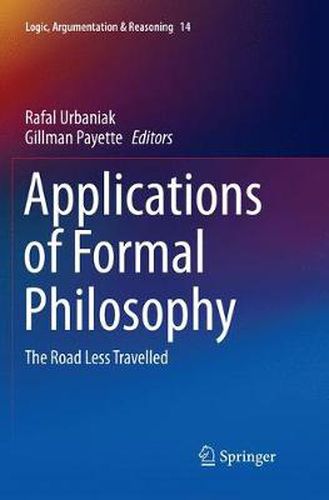Readings Newsletter
Become a Readings Member to make your shopping experience even easier.
Sign in or sign up for free!
You’re not far away from qualifying for FREE standard shipping within Australia
You’ve qualified for FREE standard shipping within Australia
The cart is loading…






This book features mathematical and formal philosophers’ efforts to understand philosophical questions using mathematical techniques. It offers a collection of works from leading researchers in the area, who discuss some of the most fascinating ways formal methods are now being applied. It covers topics such as: the uses of probable and statistical reasoning, rational choice theory, reasoning in the environmental sciences, reasoning about laws and changes of rules, and reasoning about collective decision procedures as well as about action. Utilizing mathematical techniques has been very fruitful in the traditional domains of formal philosophy - logic, philosophy of mathematics and metaphysics - while formal philosophy is simultaneously branching out into other areas in philosophy and the social sciences. These areas particularly include ethics, political science, and the methodology of the natural and social sciences. Reasoning about legal rules, collective decision-making procedures, and rational choices are of interest to all those engaged in legal theory, political science and economics. Statistical reasoning is also of interest to political scientists and economists.
$9.00 standard shipping within Australia
FREE standard shipping within Australia for orders over $100.00
Express & International shipping calculated at checkout
This book features mathematical and formal philosophers’ efforts to understand philosophical questions using mathematical techniques. It offers a collection of works from leading researchers in the area, who discuss some of the most fascinating ways formal methods are now being applied. It covers topics such as: the uses of probable and statistical reasoning, rational choice theory, reasoning in the environmental sciences, reasoning about laws and changes of rules, and reasoning about collective decision procedures as well as about action. Utilizing mathematical techniques has been very fruitful in the traditional domains of formal philosophy - logic, philosophy of mathematics and metaphysics - while formal philosophy is simultaneously branching out into other areas in philosophy and the social sciences. These areas particularly include ethics, political science, and the methodology of the natural and social sciences. Reasoning about legal rules, collective decision-making procedures, and rational choices are of interest to all those engaged in legal theory, political science and economics. Statistical reasoning is also of interest to political scientists and economists.